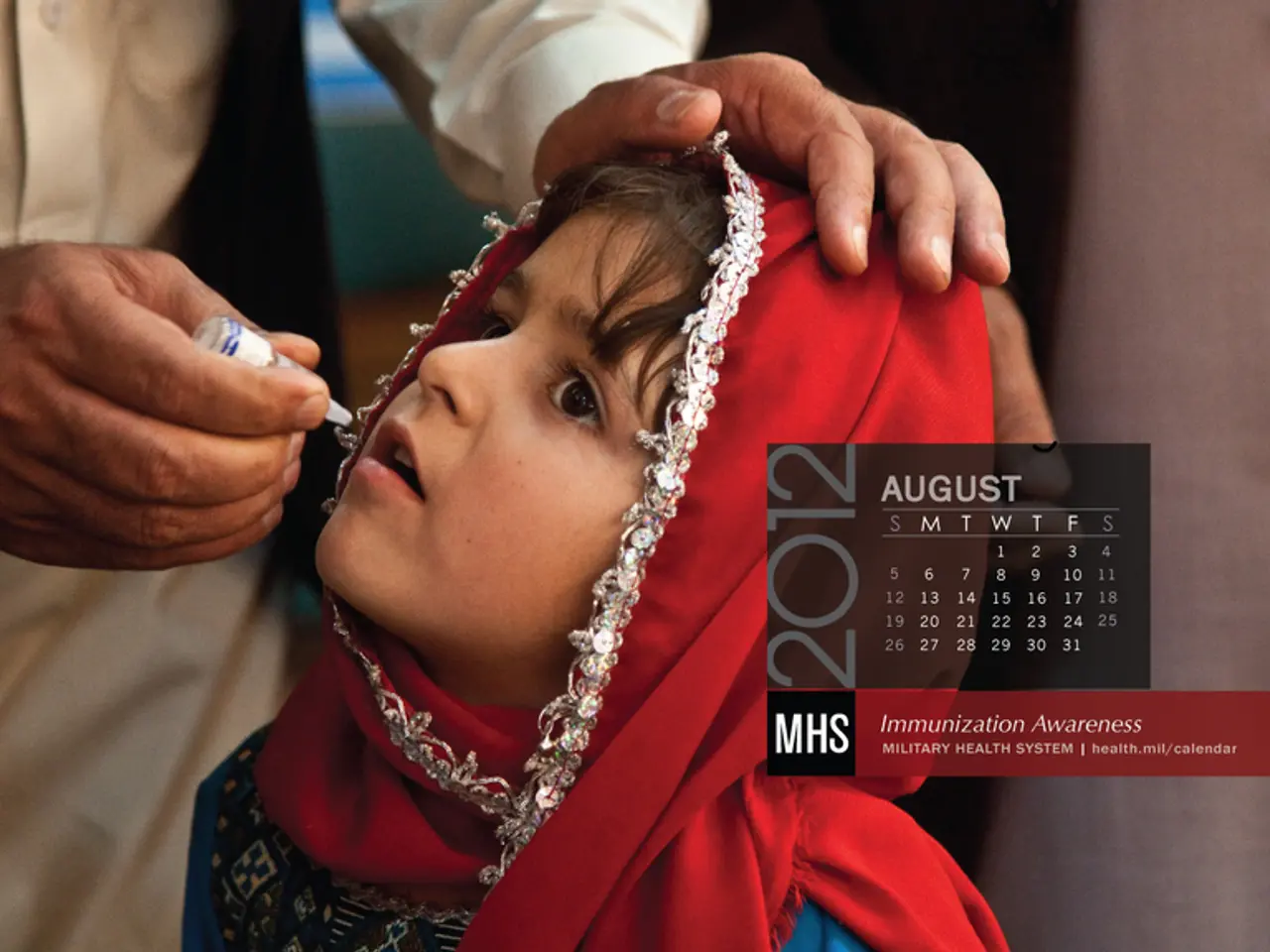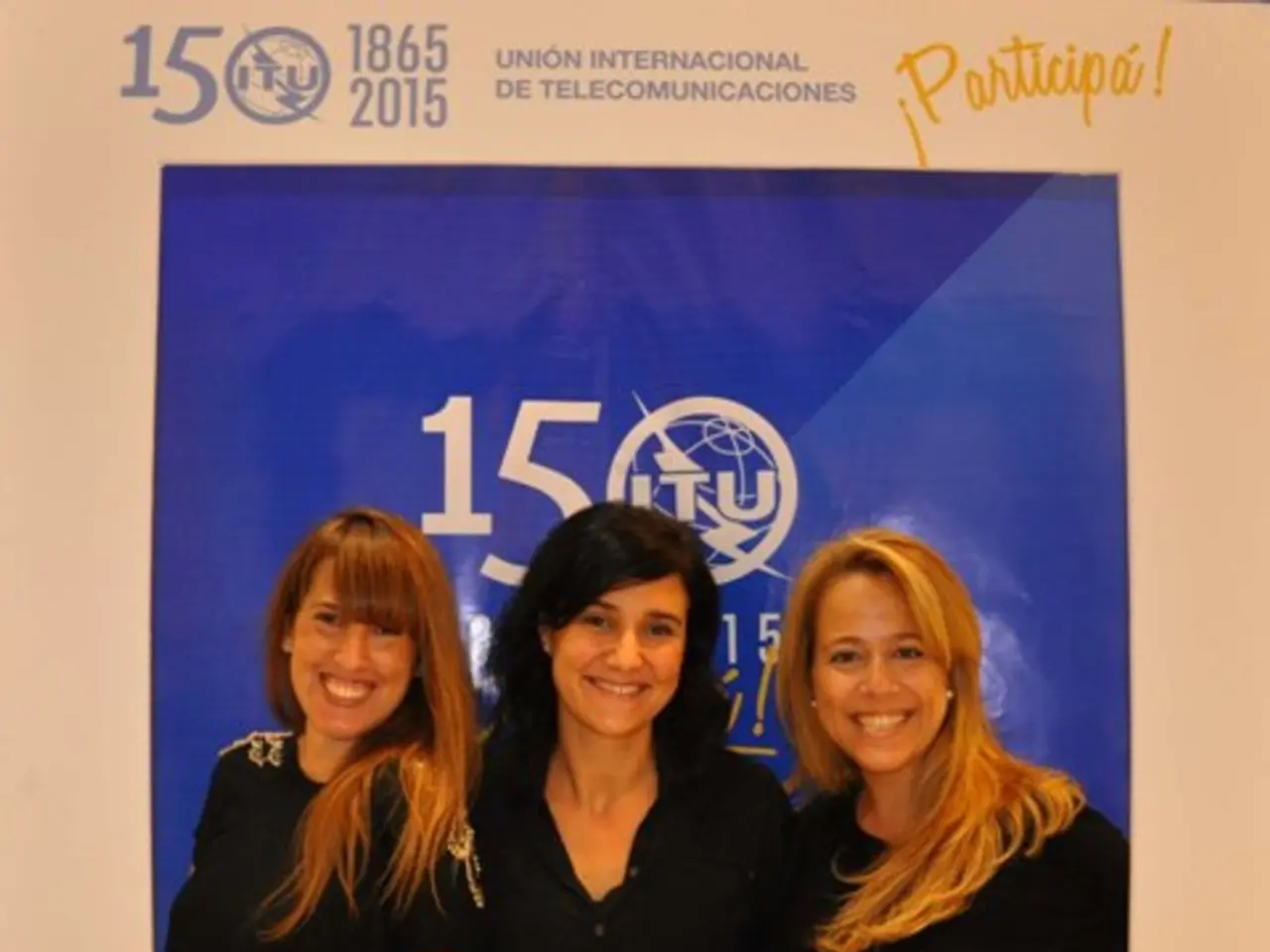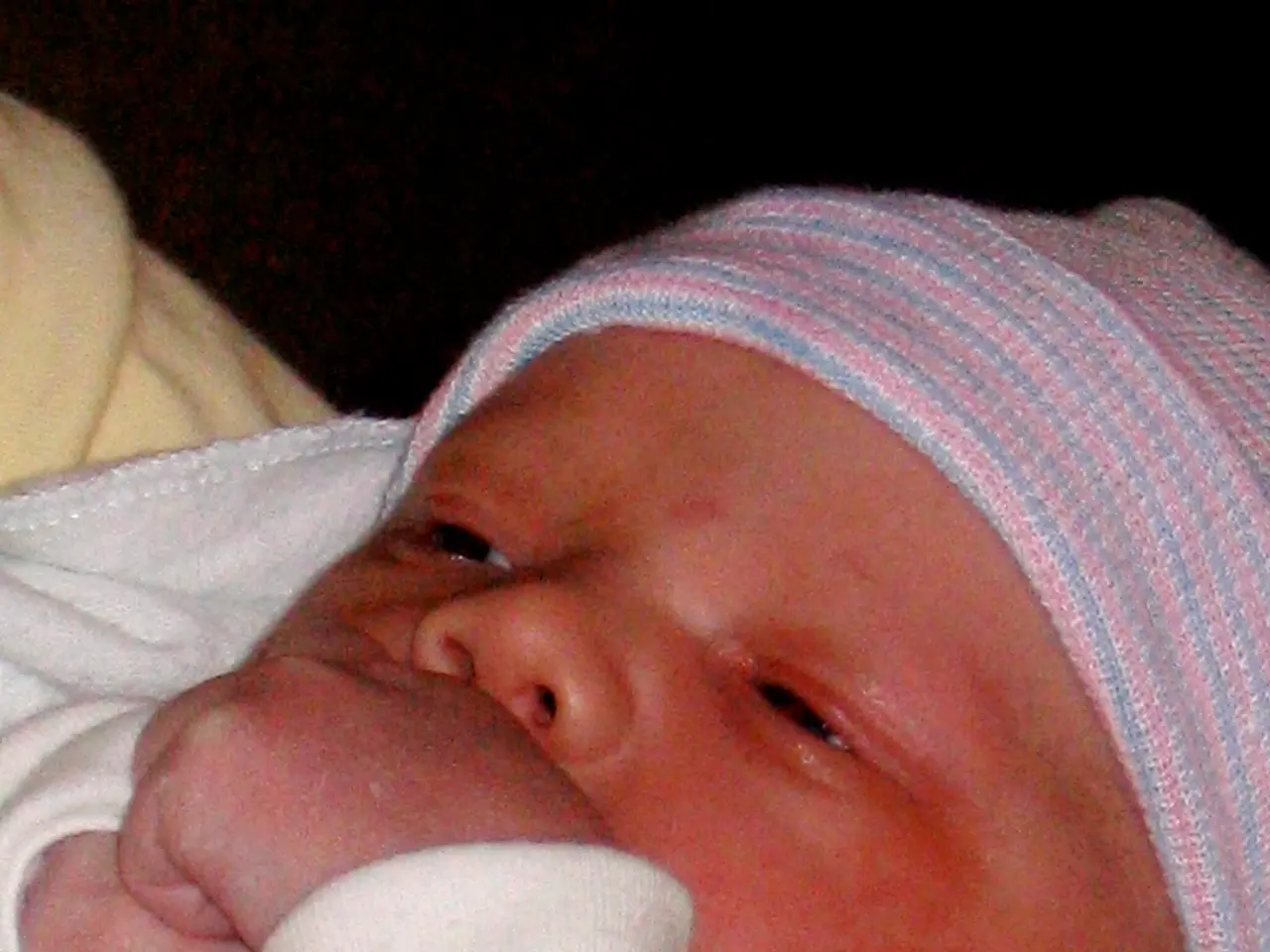Deepening Measles Outbreak in U.S. Reaches 30-Year High Mark
The United States is currently grappling with a significant resurgence of measles, a highly contagious respiratory virus, marking the worst outbreak in more than three decades. This alarming trend is primarily attributed to a decline in MMR (measles-mumps-rubella) vaccination rates, driven by growing anti-vaccine sentiment among certain communities [1][2][3].
According to data from the Centers for Disease Control and Prevention (CDC), vaccination coverage among kindergarteners has dropped from 95.2% in 2019-2020 to around 92.7% in 2023-2024, falling below the critical threshold of about 95% needed to maintain herd immunity [1].
The consequences of this decline have been stark. Most of the measles cases and fatalities in recent outbreaks, such as those in Texas and New Mexico, have been among unvaccinated children and some adults [1][2].
The decline in vaccination rates has been linked to anti-vaccination sentiment and parental refusal to vaccinate, which the World Health Organization (WHO) and health officials identify as major contributors to the reemergence of measles [3].
Despite the crisis, there is no direct, credible evidence linking Robert F. Kennedy Jr., the US Secretary of Health and Human Services, to the 2021 measles resurgence. However, Kennedy Jr. is a well-known figure often associated with anti-vaccine activism and misinformation, which has broadly influenced vaccine hesitancy in the US public discourse outside of official channels. His public stance and promotion of vaccine skepticism have been widely reported as contributing to decreased vaccine acceptance in some communities, indirectly aligning with factors enabling measles outbreaks [1][2][3][4].
The measles outbreak in the U.S. started in a rural area of Texas in late January and has since spread to nearly 40 of the 50 states. Texas accounts for more than 60 percent of the outbreak, with two of the deaths being young children. Several experts have expressed concern about a lack of reporting, suggesting that the actual number of cases may be higher [1].
As of now, a total of 1,277 cases have been confirmed since the beginning of the year, with the epidemic being recorded by Johns Hopkins University. The Mennonite Christian community in Texas, known for vaccine skepticism, has been particularly hard-hit by the measles outbreak.
Measles is spread through droplets when an infected person coughs, sneezes, or simply breathes. The virus can infect 12 to 18 others if immunity is low in the community [3]. The last major measles outbreak in the U.S., with no deaths, was recorded in 2019 in Orthodox Jewish communities of New York and New Jersey, with 1,274 cases.
Health officials urge the public to prioritise vaccination and maintain a high level of herd immunity to prevent further outbreaks. They emphasise that the MMR vaccine is safe and effective, and that any fears or misinformation should be addressed with accurate and reliable information from credible sources.
In this context, the decline in vaccination rates among kindergarteners, as shown in the data from the Centers for Disease Control and Prevention, contributes to the increased risk of medical-conditions like measles, emphasizing the importance of science-backed health-and-wellness practices such as vaccination to maintain herd immunity. Furthermore, the World Health Organization and health officials highlight that figures like Robert F. Kennedy Jr., who promote vaccine skepticism, can indirectly contribute to the reemergence of preventable diseases like measles, by influencing vaccine hesitancy in certain communities.




